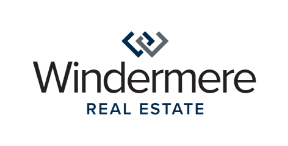The Benefits of a Pre-Listing Inspection
Pre-listing inspections can help sellers better understand the condition of their home before putting it on the market. They can also strengthen a home’s appeal to potential buyers and help to streamline the offer process, which is especially important in competitive markets. However, pre-listing inspections can also open sellers up to added liability. Talk to your Windermere agent to understand if conducting a pre-listing inspection is right for your home.
What is a Home Inspection?
Conducted by a licensed home inspector, a home inspection is a detailed review of the condition of a home and property. Inspectors examine everything from a home’s electrical work and sewage to its heating and cooling systems, searching for any evidence of damage or structural issues that may affect its value. By having your home inspected before you sell, you’ll have the chance to discover whether it needs any repairs or upgrades.
Pre-Listing Inspections
Pre-listing inspections not only help identify repairs, but they can also make the selling process more efficient. A pre-listing inspection discloses a home’s condition to buyers up front and gives them confidence that the seller is being transparent about any possible issues. This can save significant time for both buyers and sellers, especially in competitive markets where there are multiple offers on the table.
Something for sellers to keep in mind is that if a home in a competitive market does not provide a pre-inspection report, buyers may be hesitant to make an offer knowing the time it takes to perform an inspection and the fact that they are likely competing against several other buyers who are willing to waive this step.
The Benefits of a Pre-Listing Inspection
Home inspections give a good baseline of your home’s condition. The information gathered during this process is exactly the kind of in-depth knowledge that buyers want to know when considering placing an offer on a home.
Since buyers will know right away what repairs are needed, they can factor them into their initial offer, as opposed to discovering them during the inspection contingency and getting entangled in negotiations. Being forthcoming about your home also reduces the chances of an offer falling through and the buyer walking away.
An added benefit of a pre-listing inspection is that it helps your real estate agent more accurately price the home and enables them to market it with the knowledge that everything is being presented in the most transparent way possible.
If you have any questions about home inspections or any of the steps in the selling process, we’re happy to connect you with a Windermere agent here: Connect with an agent
The post The Benefits of a Pre-Listing Inspection appeared first on Windermere Colorado REALTORS.






